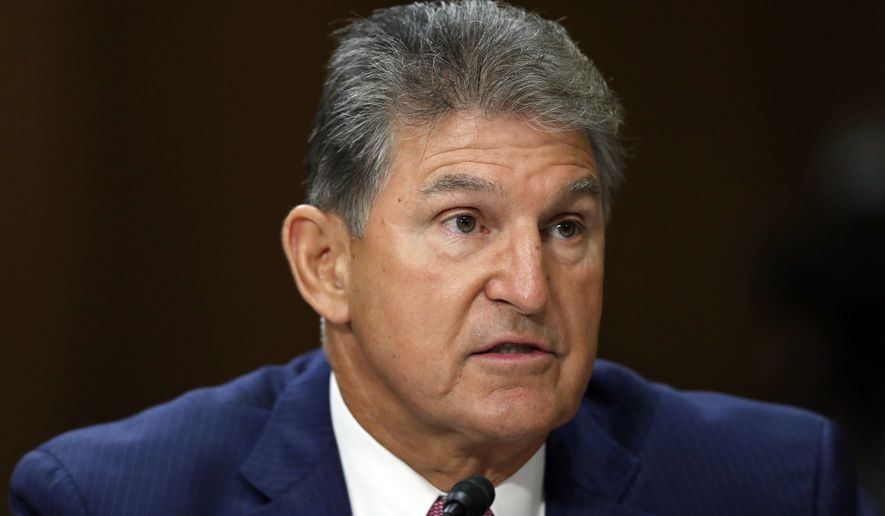Sen. Joe Manchin III of West Virginia filed legislation Monday that would rewrite a controversial 2016 law that made it more difficult for the Drug Enforcement Administration to suspend shipments of opioids that could be diverted to the illicit market.
Mr. Manchin, a Democrat facing re-election in a red state that’s reeling from prescription painkiller and heroin abuse, said the Justice Department requested his proposed changes to the law, which had breezed through Congress without much scrutiny.
Many Capitol Hill lawmakers now say they didn’t realize the law weakened the DEA’s authority amid the opioids crisis, which is killing tens of thousands of American each year, prompting cries to repeal or amend it.
Mr. Manchin’s bill would lower the threshold for agents to flag and suspend drug shipments.
Agents would have to show “probable cause” for issuing a suspension order instead of demonstrating the “substantial likelihood of an immediate threat” of death, serious bodily harm or drug abuse before stepping in.
It would also axe a part of the 2016 law that allowed companies to submit a “corrective action plan” before facing punishment for suspicious orders.
Congress is scrutinizing the law after an investigation by “60 Minutes” and The Washington Post revealed how the industry measure swept through Capitol Hill with little pushback, even as lawmakers were trying to get a handle on the devastating opioid crisis.
One of the bill’s sponsors, Rep. Tom Marino of Pennsylvania, withdrew as President Trump’s initial pick to lead the Office of National Drug Control Policy, while Sen. Orrin Hatch, a Utah Republican who helped negotiate the final bill, said he worked in good faith to strike the right balance between cracking down on bad actors and ensuring that real pain sufferers received their medication.
The House Energy and Commerce Committee said it took a while for the DEA and Justice Department to recommend changes to the law.
Chairman Greg Walden, Oregon Republican, recently said he still wants to know why the DEA drastically slashed its use of suspension orders to interdict shipment before the 2016 law even passed.
• Tom Howell Jr. can be reached at thowell@washingtontimes.com.




Please read our comment policy before commenting.